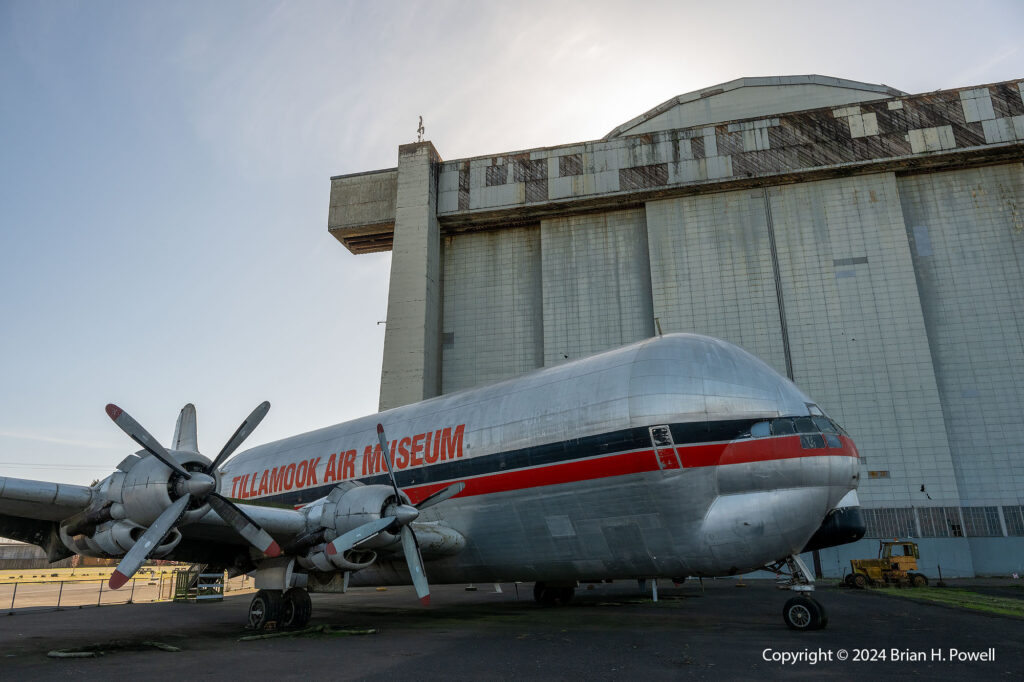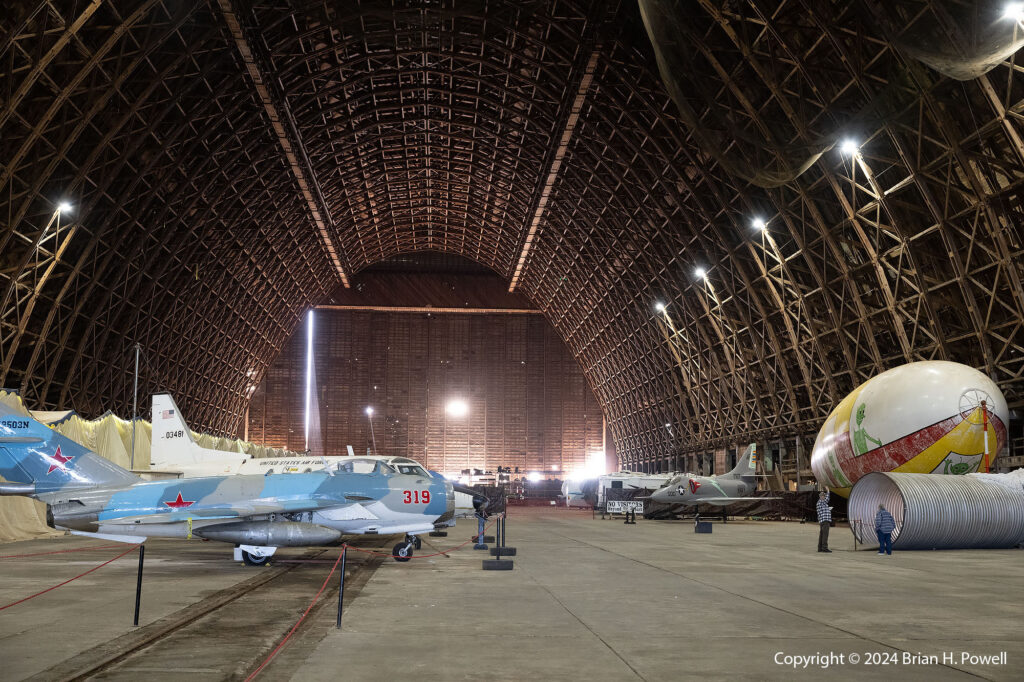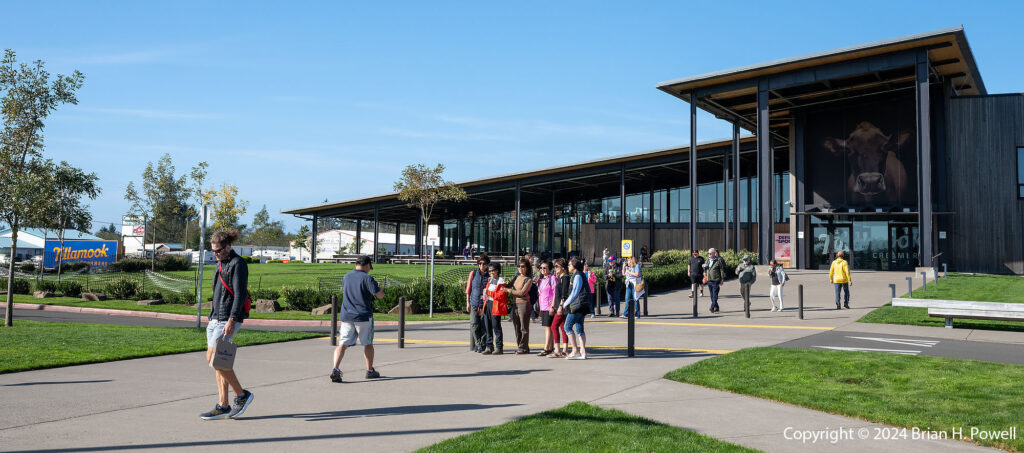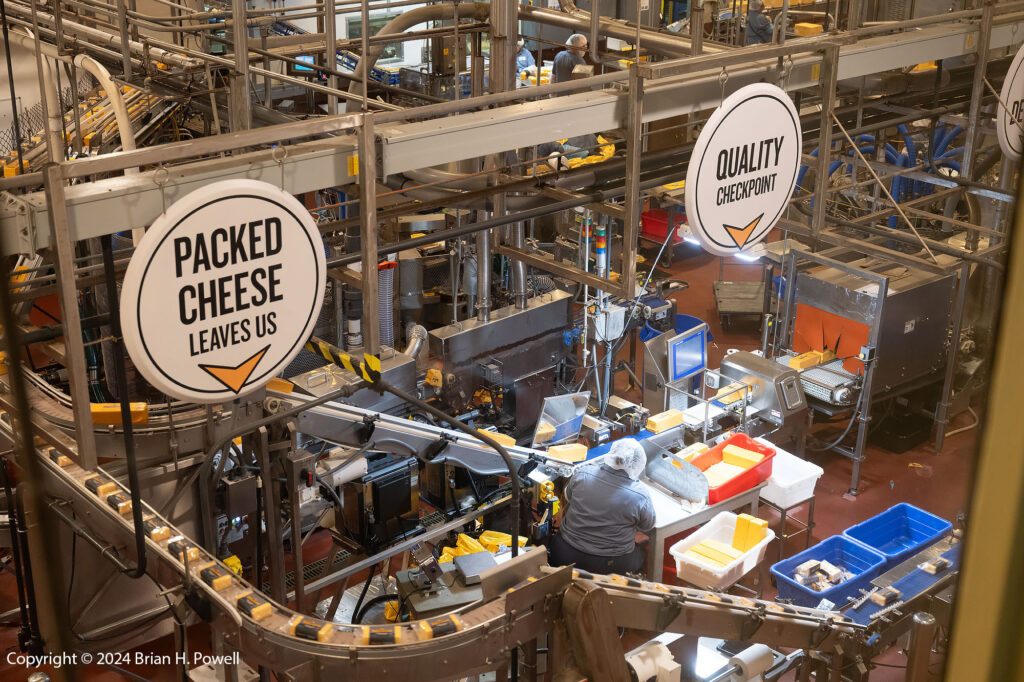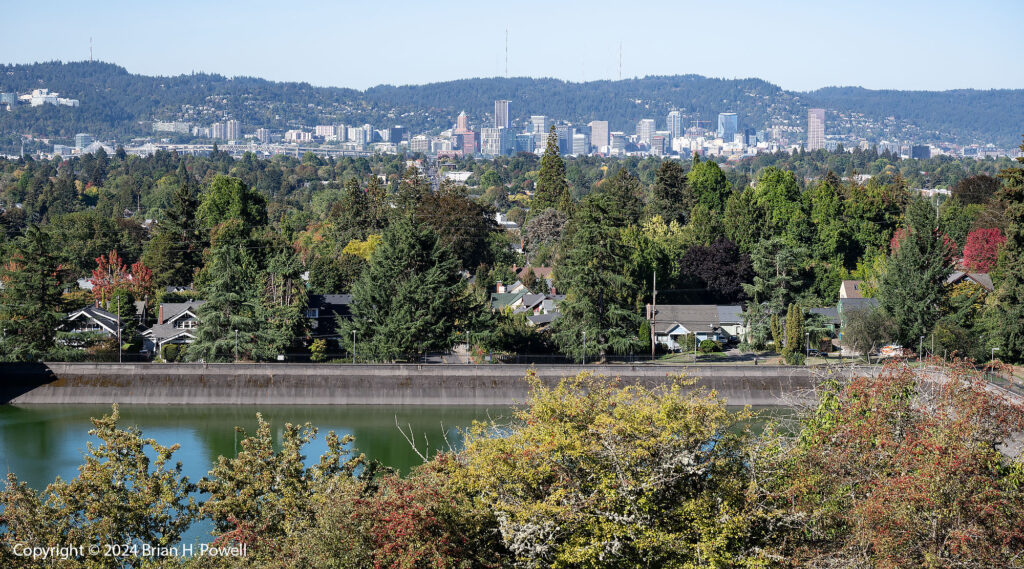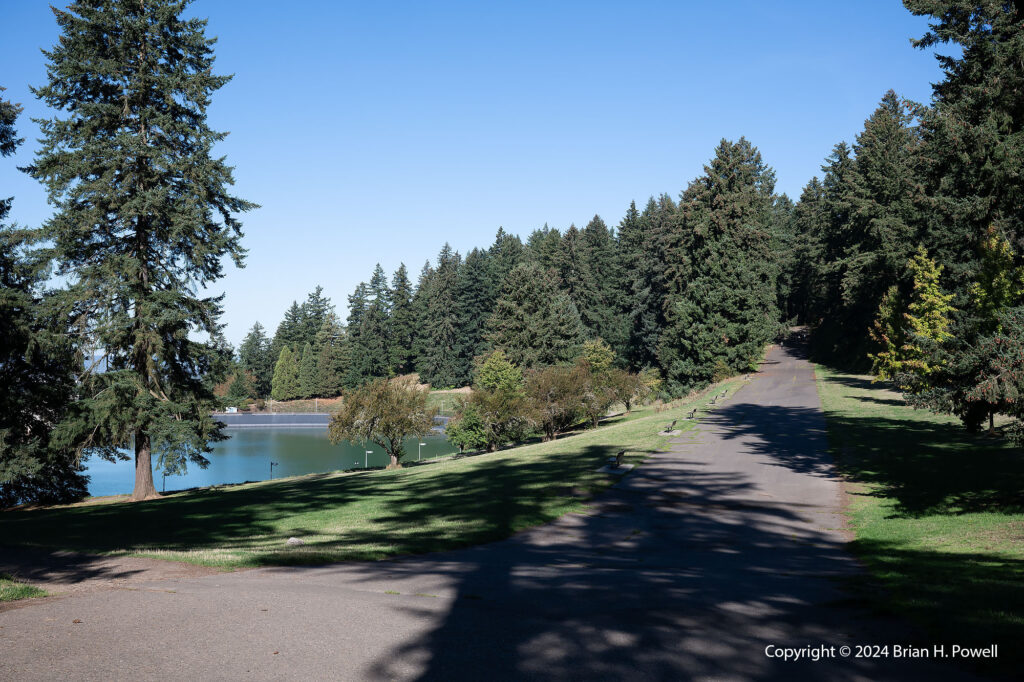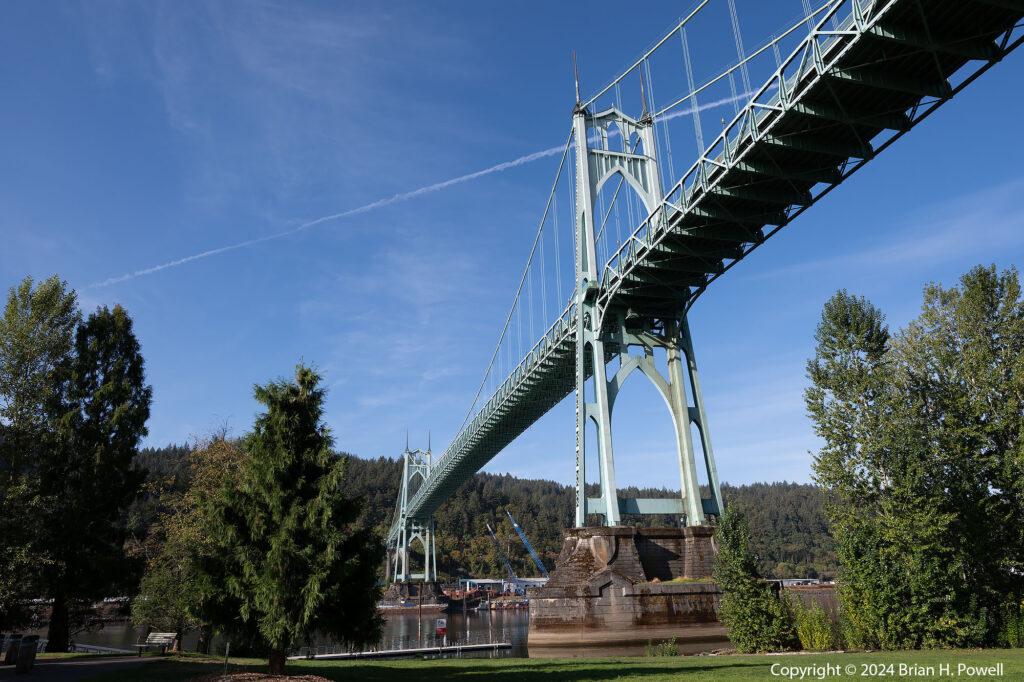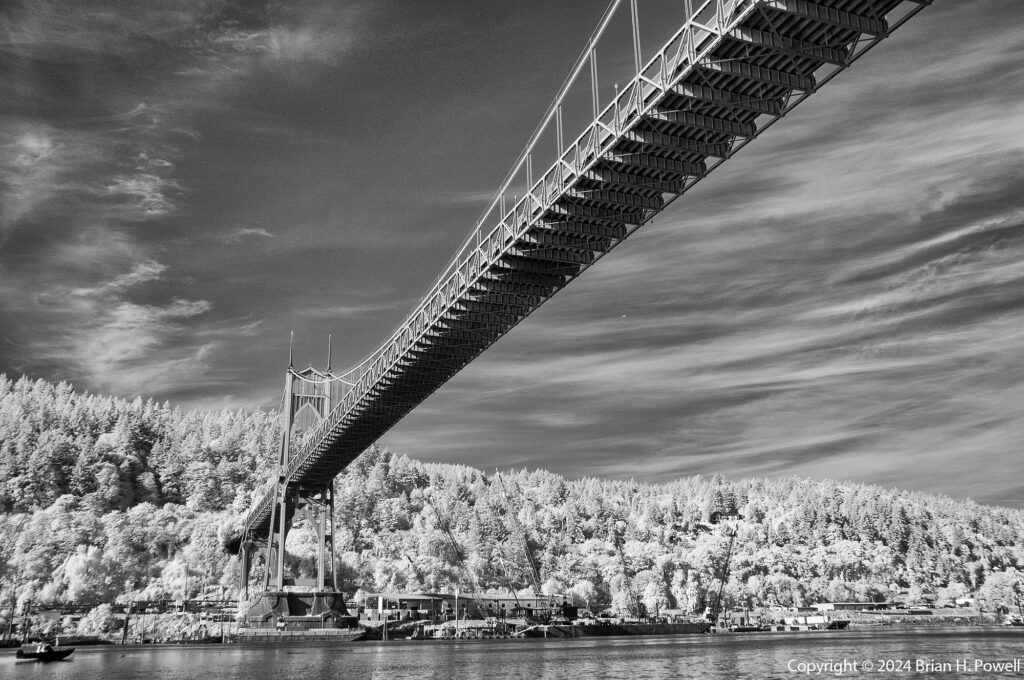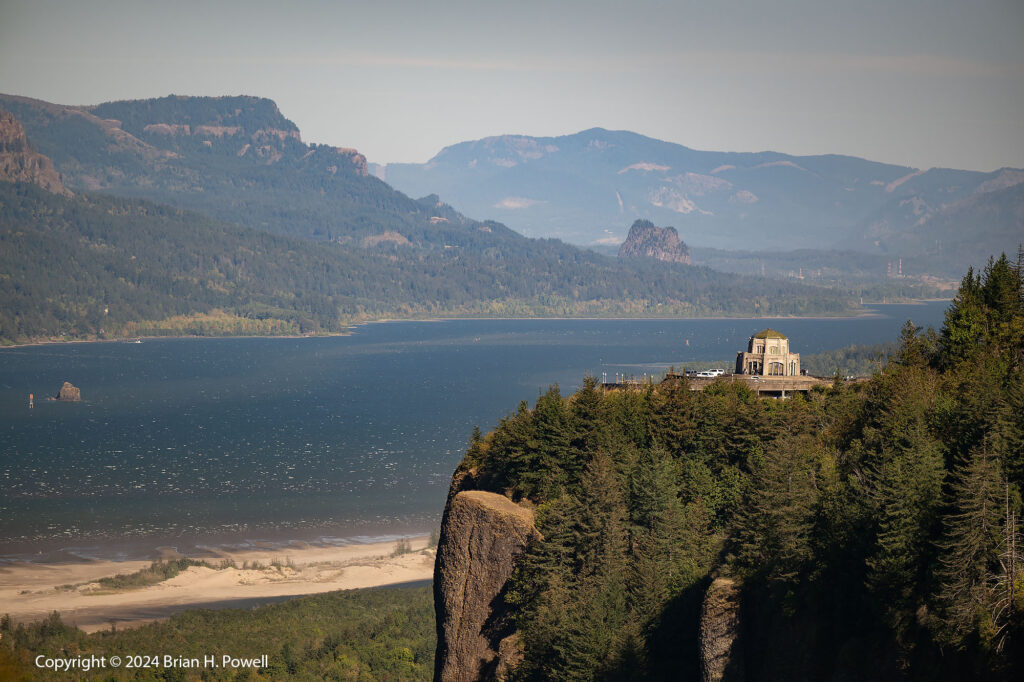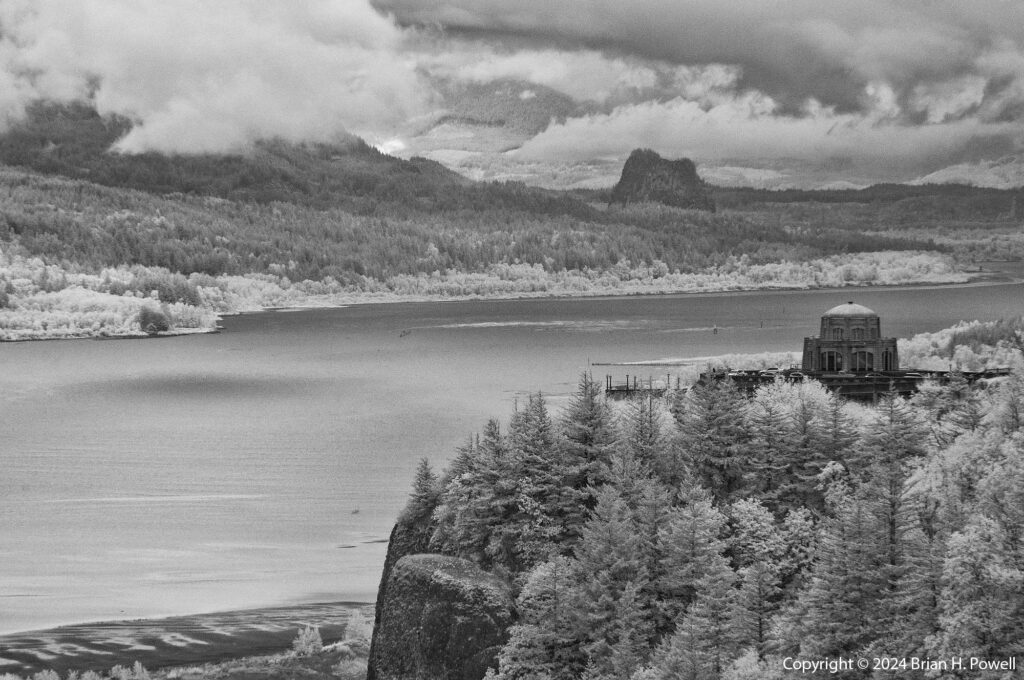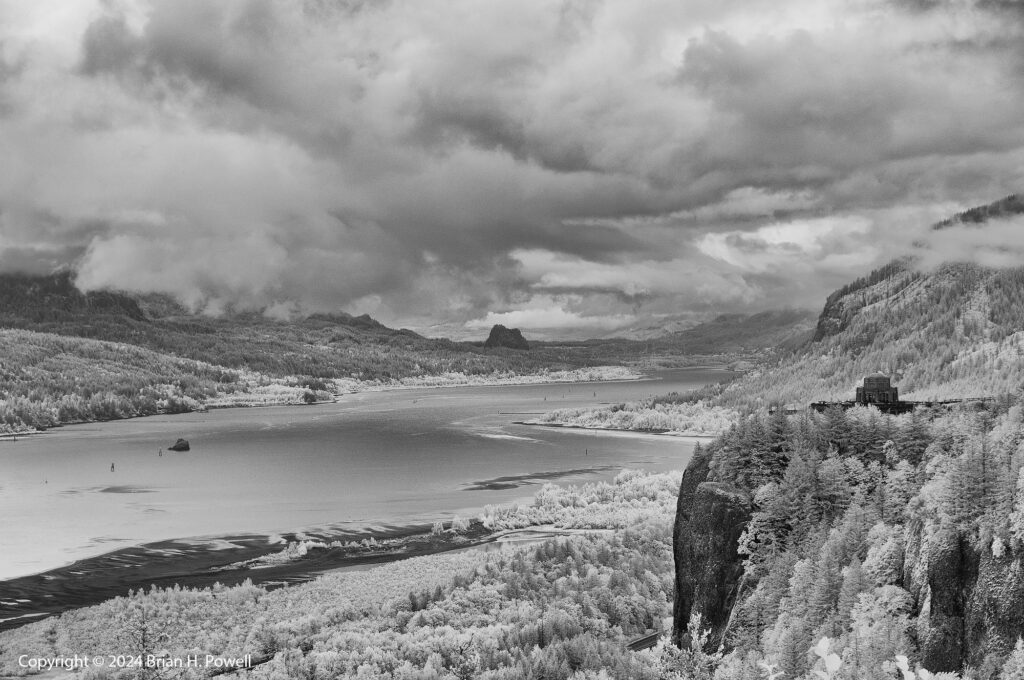Portland Wine and Waterfalls, Part 2 (Tillamook and Portland)
Only one day of my trip was devoted to wine. On the other days, sprinkled in among lunches and dinners with friends, I explored. I revisited several waterfalls in the Columbia River Gorge, which I’ll cover in Part 3.
One afternoon, I drove out to Tillamook, near the Pacific coast. I had been through there years ago, but hadn’t stopped.
There were two attractions I was most interested in visiting. First was the Tillamook Air Museum, housed in a large WWII-era blimp hanger. Its collection of planes and other memorabilia is somewhat limited and quite eclectic. I hope on my next visit to Portland that I’ll also be able to visit the Evergreen Aviation and Space Museum in McMinnville.
Click on any image to enlarge.
For me, the historic hangar was a big part of the draw. Two hangars were built at Tillamook; one was destroyed by fire in 1992. Each hangar housed several blimps used for coastal anti-submarine patrol and convoy escort during the second world war. The Tillamook Naval Air Station (NAS) was one of ten bases built for lighter-than-air ships in the war for coastal defense. Two more on the west coast are Moffett Field in Sunnyvale, California, and NAS Santa Ana in Tustin, California. Two were on the Gulf Coast, near Galveston and Houma. The rest were on the Atlantic Coast. Most have been destroyed through the years. The hangar in Tillamook is the only one open to the public.
After visiting the air museum, I had time to drive into town and visit the Tillamook Creamery.
The cheese and ice cream were delicious, and I took a short self-guided tour.
On another morning, I visited Mt. Tabor Park, a city park. On the site of a volcanic cinder cone, it contains several city water reservoirs, with miles of hiking trails throughout.
The paved road in the photo below is actually a soapbox derby track.
On a different morning, I visited the St. John’s Bridge, one of the more picturesque tall bridges over the Willamette River.
As I often do, I brought my infrared camera, a Nikon D300 converted to infrared by Life Pixel. (That’s an affiliate link, meaning I earn a credit at no additional cost to you if you buy something from them.)
Below is a similar view (closer to the water) in infrared.
One of the most striking viewpoints of the Columbia Gorge is Vista House, an “observatory” built in 1918 on Crown Point along the Historic Columbia River Gorge Highway. I took the photo below from the Portland Women’s Forum State Scenic Viewpoint.
I tried to stop at Vista House itself but it was incredibly windy, so I just got back into the car and drove on. (Those are whitecaps on the Columbia River in the photo below.)
For most of the trip, the weather was gorgeous–sunny and mild. The only cloudy and rainy day was Friday, the last full day of my trip. I tried dodging the rain by driving east and south of Mt. Hood, but that didn’t work. I came back around to take some infrared photos of Vista House.
I love using my infrared camera in poor weather; it can really bring out the moody intensity of the clouds. (Click on the Infrared tag on the upper right for more examples.)
The rain cleared after a couple of hours and I visited several waterfalls in the gorge, coming up in part 3.


